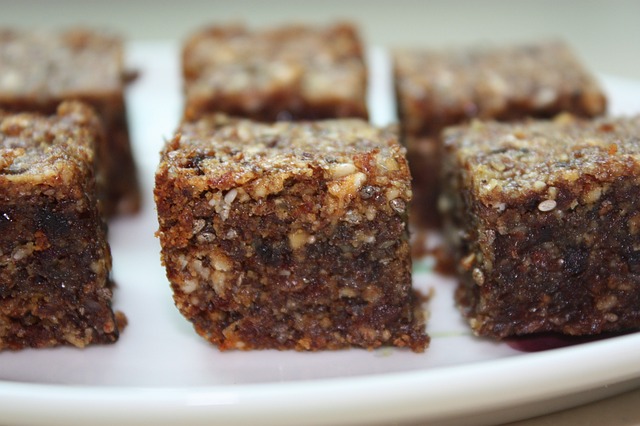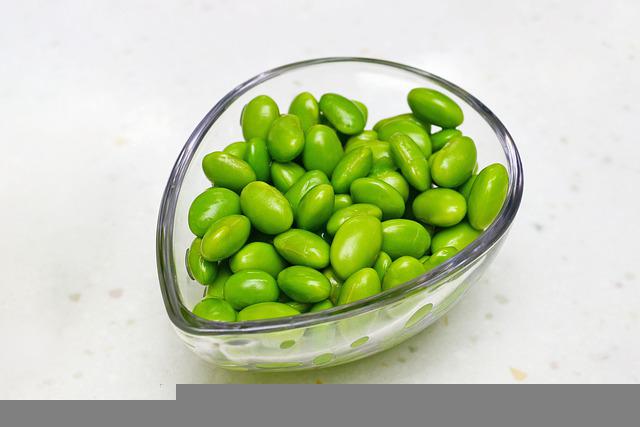We have some useful information for ladies who are shopping and looking for protein bars. Please read through whether consuming protein bars are necessary and helpful for you.
Click Here to Read Part 1 on Protein Bars for Ladies
Are Protein Bars Useful?
Protein bars can be good for ladies who have greater protein needs, such as those who are physically active or compete in sports. These can be used as a convenient way to increase protein consumption for the day, as well as after a workout, to enhance muscle repair.
Protein bars can aid the following ladies:
Athletes. Endurance sports’ protein requirements may be around double those of an ordinary sedentary adult, while strength athletes’ protein requirements may likewise be higher than sedentary individuals. As a result, as an athlete, you may benefit from supplemental protein sources. Protein bars can be a useful supplement to your refueling schedule, especially if you are a vegan athlete. You may still fall into this group if you are not a competitive athlete but are a highly active individual who exercises for at least 60-90 minutes a week.
Individuals who eat a plant-based diet. Getting enough protein is a typical worry for people who eat entirely or primarily plant-based diets. While there are many plant-based protein meal options to meet protein demands, bars can be a quick way to increase your daily protein intake.
Individuals who are constantly on the move. When we’re on the road, it’s easy to go to lengthy lengths without eating. On hectic days, protein bars can be a quick, satiating, and energy-boosting snack.
Who Shouldn’t Eat Protein Bars?
Individuals who eat a well-balanced diet. If you eat a balanced diet that includes a range of whole-food protein sources, you may not need protein bars. This is especially true if you are inactive or sedentary. A protein bar with a moderate protein level, heart-healthy fats, and micronutrients from nuts or seeds, on the other hand, could be a decent snack for everyone.
Individuals who have renal issues. Protein overconsumption can be hard on the kidneys; therefore, if you have a renal condition, you should avoid protein bars. Certain protein bars contain a high protein concentration in a small volume. If you have kidney difficulties, always see a doctor before adding a high-protein meal.
How We Choose Supplements
Our staff works hard to be open and honest about why we recommend specific supplements; you can learn more about our dietary supplement methodology here.
We advocate evidence-based and scientifically based supplements. We place a premium on specific product characteristics that we believe are connected with high-quality items.
It is vital to note that the FDA does not assess dietary supplements for safety and efficacy before they are released to the public. To choose the supplements we prescribe, our team of specialists developed a detailed, science-backed methodology.
Protein Bar Features to Look For
Ingredients in general
In general, opt for a protein bar with basic components. We favor nuts, seeds, and whole grains because they give vital minerals and fiber in addition to protein. They are also easier to digest than bars containing additives such as artificial sweeteners or extra fiber.
Some protein bars are actually disguised candy bars that are strong in energy, fat, and sugar. As a result, it is critical to read the ingredient, as not all protein bars are created equal. We chose protein bars that are predominantly made from whole food sources, are nutritionally balanced and are portioned appropriately for a snack.
Protein Type and Quantity
Sedentary people should consume 0.8 grams of protein per kilogram of body weight each day. This equates to 55 grams of protein for a 150-pound person and 73 grams of protein for a 200-pound person. This can, however, vary substantially depending on your degree of physical activity, whether you are pregnant or nursing, or if you have other medical problems that alter protein needs.
Protein powder-based bars are more likely to contain artificial sweeteners or sugar alcohols. As a result, they may be more difficult to digest for some people.
Carbohydrates
Whole grains should account for 50% of your grain intake, according to the Dietary Guidelines for Americans. Having said that, we recommend looking for protein bars packed with nutritious grains like oats, brown rice, or quinoa.

These whole grains provide B vitamins, iron, magnesium, and fiber. Carbohydrates, in general, are crucial for energy and concentration, especially in athletes.
If a protein contains added sugars, which is considered a carbohydrate, we recommend selecting a bar that does not have added sugars as a key ingredient. Dried fruits are another carbohydrate source used in protein bars, providing natural sweetness as well as fiber and other minerals.
“‘Low carb’ diets are a hot issue these days, yet carbs serve a crucial part in maintaining your body’s daily functions,” says sports nutritionist Amity Lui MS, RD. If you find yourself constantly seeking sweets or having low energy levels in the afternoon, it could be an indication that you aren’t eating enough carbohydrates or eating enough in general.”
Fat
Protein bars frequently contain a blend of unsaturated and saturated fats. Unsaturated fats, particularly polyunsaturated fats, are beneficial for cardiovascular health, whereas saturated fat may raise the risk of cardiovascular disease.
Protein bars on the market that use seeds and nuts can pack some heart-healthy omega 3’s, poly, and monounsaturated fat. Whole-food protein bars made from nuts and seeds may contain additional minerals such as vitamin E, magnesium, folate, copper, and thiamin. When choosing a protein bar, look for one with less than 10% DV of saturated fat.
Sweetener Type and Quantity
Certain protein bars, as previously stated, contain additional sugars, artificial sweeteners, or sugar alcohols. Sugar substitutes may assist in adding sweetness without raising blood sugars for some people, such as those with diabetes, but for others, they may cause digestive distress, or the flavor may be unpleasant.
To assist in reducing added sugar intake, an increasing number of Americans are purchasing items containing non-nutritive sweeteners rather than caloric sweeteners. Nonetheless, researchers believe that more research into the health impacts of greater use of each non-nutritive sweetener variety is needed. Hence, while eating a bar with artificial sweeteners can still fit into a balanced diet, bear in mind your total artificial sweetener intake throughout the day.
Dieticians recommend that added sugars account for no more than 10% of your daily calories. This equates to 50 grams of added sugars for someone ingesting 2,000 calories per day.
As a result, just because a protein bar contains added sugar doesn’t mean it can’t be part of a balanced diet. The extra sugar should simply be reported as part of your total daily intake. Some protein bars use dates or fruits to enhance sweetness, reducing the need for additional sugar ingredients.
Fiber
Fiber is a type of nondigestible carbohydrate found in plants. It helps with blood sugar control, intestinal health, cholesterol-lowering, and satiety.
You may want to include some fiber in your protein bar, but too much fiber may cause digestive upset.
In general, aiming for 3-6 grams of fiber per bar can assist in promoting digestive health and fullness without causing digestive pain. If your current fiber intake is really low, as it is for many Americans, you may want to gradually increase your fiber intake while also increasing your fluid intake to give your body time to acclimate.
Is it safe to consume a protein bar on a daily basis?
Generally, nutritional variety is vital for getting all of the required elements and avoiding eating monotony. One concern of taking protein bars on a daily basis is missing out on other vital foods or nutrients as a result. It is critical to eat a varied diet and, if feasible, switch protein bar options and incorporate them as needed.
To ensure a well-rounded nutritional intake, consider the nutrient composition of the bar as well as the other foods you consume throughout the day. Additional high-protein snacks include hard-boiled eggs, almonds, Greek yogurt, chia pudding, edamame, and string cheese.
Do protein bars help you lose weight?
Protein bars can be incorporated into a healthy diet, but it is vital to remember that one food does not make or break your ability to achieve your health goals. Rather, weight control is the result of a variety of lifestyle decisions and hereditary variables.
It’s also vital to consider how your eating choices affect your general health, regardless of weight. Focusing on health-promoting activities rather than weight has been found in studies to improve health outcomes independent of weight change. Protein bars are a filling snack that can help you follow your hunger cues while you’re on the road or short on time.
What texture do protein bars have?
Everything is determined by the bar. Some are soft and mushy, while others are crunchy and chewy. The protein bars we listed above have a variety of textures that differ depending on whether they’re created with nuts or seeds or with dates and other blended ingredients.
Xanthan gum or cellulose gum is sometimes responsible for the chewy feel of bars, so look for these components to get a sense of their texture. Date-based bars will also have a chewy texture. If a bar is mostly made of nuts, it will be crunchier.
To Conclude
Protein bars are particularly handy when you need a quick snack on the road or as a pre-or post-workout nutrition. Whether it’s a long day of errands, many training sessions, or just a lunchtime pick-me-up, I always keep one (or several) in my bag for you or a hungry friend!
In general, we advise against relying too heavily on protein bars as a meal replacement because they are frequently insufficiently caloric to function as a full meal.


